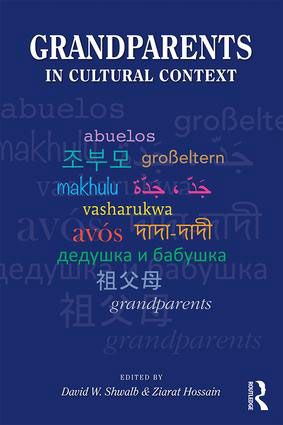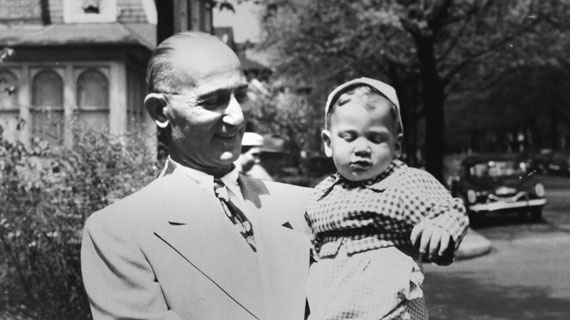Professor Writes New Book About Grandparents
Published: September 07, 2017 | Author: Miles Anderson | Read Time: 3 minutes

Dr. David Shwalb, a psychology professor at Southern Utah University, recently published a book with Routledge Publishing titled “Grandparents in Cultural Context” which provides some enlightening insights on the different roles grandparents play depending on the culture in which they live.
After he first became a grandparent in the 1990s, Dr. Shwalb’s interest in grandparenting research was prompted by his wife, Dr. Barbara Shwalb. Over the years, this topic really became more and more relevant, and the Shwalb’s now have 18 grandchildren and 2 great-grandchildren.
The book is an anthology, with chapters of the book written by experts from 15 different countries. Each chapter explains customs, proverbs, and case studies from different countries or regions. The articles were collected and edited by Dr. Shwalb and co-editor Ziarat Hossain of the University of New Mexico. “One of my favorite things about the book is that Dr. Paul Larson of SUU created five maps for the book, and Rohn Solomon (also of SUU) designed our book cover. They both did great work," said Shwalb.
According to the book, Western culture tends to put grandparents in the backseat, as illustrated by the concept of “non-interference.” That is, many Western grandparents can babysit or attend sporting events or birthday parties for their grandchildren, but the parents are by law and custom in charge. Simply put, it isn’t the grandparents place to interfere in the lives of their grandkids. Because of this mindset, the importance of having a connection with your grandparents is frequently downplayed.
“Everybody knows their parents are important in their lives so there is a big emphasis in psychology on how important parents are,” said Shwalb, “but when they get older, they are neglected, almost like they are optional. If you know your grandparents that's great, if you don’t that's too bad. I hope our book will encourage more scholars to study grandparents, and encourage more families to better appreciate grandparents.”
The role of grandparents in other countries varies significantly, and in most non-Western countries (as in Central America, the Middle East, Africa, and South or East Asia) tens of millions of grandparents are involved almost as much as the parents in the rearing of the children. In these places, their involvement isn’t questioned or seen as interference or optional. Rather, grandparents are needed and expected to help. This cultural difference can be explained by several different things, but one major factor is the need for further assistance from family members in raising children due to poverty, migration, and mass epidemics.
Fortunately, cross-cultural research has increased over the last couple decades, as Western societies are recognizing the value of grandparents. Drs. Shwalb and Hossain have shown that this is due largely to the fact that grandparents are living longer so grandchildren are able to make those connections with their grandparents for longer and longer periods of time.
Currently, there are 16 countries with holidays dedicated to grandparents, with the United States celebrating grandparents on September 10. Dr. Shwalb hopes people make the effort to call their grandparents on the 10th or at least on their birthdays. Generations in the past haven’t had near as much of an opportunity to get to know their grandparents, making us a lucky generation.
Contact Information:
435-586-5400
Contact the Office of Marketing Communication
This article was published more than 3 years ago and might contain outdated information or broken links. As a result, its accuracy cannot be guaranteed.

